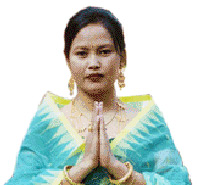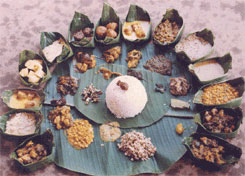AN APPEAL FOR SUPPORT
- We seek your support to meet the expenses relating to the formatting of articles and books, maintaining and running the journal through hosting, correrspondences, etc.Please write to the Editor in his e-mail address mthirumalai@comcast.net to find out how you can support this journal.
- Also please use the AMAZON link to buy your books. Even the smallest contribution will go a long way in supporting this journal. Thank you. Thirumalai, Editor.
BOOKS FOR YOU TO READ AND DOWNLOAD FREE!
- Form and Function of Disorders in Verbal Narratives - A Doctoral Dissertation ...
Kandala Srinivasacharya, Ph.D. - Status Marking in Tamil - A Ph.D. Dissertation ...
P. Perumalsamy, Ph.D. - LANGUAGE AND POWER IN COMMUNICATION ...
Editors: Jennifer M. Bayer, Ph.D., and Pushpa Pai, Ph.D. - Onomatopoeia in Tamil ...
V. Gnanasundaram, Ph.D. - Linguistics and Literature ...
C.Shunmugom, Ph.D., and C. Sivashanmugam, Ph.D., V. Thayalan, Ph.D. and C. Sivakumar, Ph.D. (Editors) - Translation: New Dimensions ...
C.Shunmugom, Ph.D., and C. Sivashanmugam, Ph.D., Editors - Language of Headlines in Kannada Dailies ...
M. N. Leelavathi, Ph.D. - Cooperative Learning Incorporating
Computer-Mediated Communication: Participation, Perceptions, and Learning Outcomes
in a Deaf Education Classroom ...
Michelle Pandian, M.S. -
The Effects of Age on the Ability to Learn English As a Second Language ...
Mariam Dadabhai, B.A. Hons. - A STUDY OF THE SKILLS OF READING
COMPREHENSION IN ENGLISH DEVELOPED BY STUDENTS OF STANDARD IX IN THE SCHOOLS IN TUTICORIN DISTRICT, TAMILNADU ...
A. Joycilin Shermila, Ph.D. - A Socio-Pragmatic Comparative Study of Ostensible Invitations in English and Farsi ...
Mohammad Ali Salmani-Nodoushan, Ph.D. - ADVANCED WRITING - A COURSE TEXTBOOK ...
Parviz Birjandi, Ph.D.
Seyyed Mohammad Alavi, Ph.D.
Mohammad Ali Salmani-Nodoushan, Ph.D. - TEXT FAMILIARITY, READING TASKS, AND ESP TEST PERFORMANCE: A STUDY ON IRANIAN LEP AND NON-LEP UNIVERSITY STUDENTS - A DOCTORAL DISSERTATION ...
Mohammad Ali Salmani-Nodoushan, Ph.D. - A STUDY ON THE LEARNING PROCESS OF ENGLISH
BY HIGHER SECONDARY STUDENTS
WITH SPECIAL REFERENCE TO DHARMAPURI DISTRICT IN TAMILNADU ...
K. Chidambaram, Ph.D. - SPEAKING STRATEGIES TO OVERCOME COMMUNICATION
DIFFICULTIES IN THE TARGET LANGUAGE SITUATION - BANGLADESHIS IN NEW ZEALAND ...
Harunur Rashid Khan - THE PROBLEMS IN LEARNING MODAL AUXILIARY VERBS IN ENGLISH AT HIGH SCHOOL LEVEL ...
Chandra Bose, Ph.D. Candidate - THE ROLE OF VISION IN LANGUAGE LEARNING
- in Children with Moderate to Severe Disabilities ...
Martha Low, Ph.D. - SANSKRIT TO ENGLISH TRANSLATOR ...
S. Aparna, M.Sc. - A LINGUISTIC STUDY OF ENGLISH LANGUAGE CURRICULUM AT THE SECONDARY LEVEL IN BANGLADESH - A COMMUNICATIVE APPROACH TO CURRICULUM DEVELOPMENT by
Kamrul Hasan, Ph.D. - COMMUNICATION VIA EYE AND FACE in Indian Contexts by
M. S. Thirumalai, Ph.D. - COMMUNICATION
VIA GESTURE: A STUDY OF INDIAN CONTEXTS by M. S. Thirumalai, Ph.D. - CIEFL Occasional
Papers in Linguistics,
Vol. 1 - Language, Thought
and Disorder - Some Classic Positions by
M. S. Thirumalai, Ph.D. - English in India:
Loyalty and Attitudes
by Annika Hohenthal - Language In Science
by M. S. Thirumalai, Ph.D. - Vocabulary Education
by B. Mallikarjun, Ph.D. - A CONTRASTIVE ANALYSIS OF HINDI
AND MALAYALAM
by V. Geethakumary, Ph.D. - LANGUAGE OF ADVERTISEMENTS
IN TAMIL
by Sandhya Nayak, Ph.D. - An Introduction to TESOL:
Methods of Teaching English
to Speakers of Other Languages
by M. S. Thirumalai, Ph.D. - Transformation of
Natural Language
into Indexing Language:
Kannada - A Case Study
by B. A. Sharada, Ph.D. - How to Learn
Another Language?
by M.S.Thirumalai, Ph.D. - Verbal Communication
with CP Children
by Shyamala Chengappa, Ph.D.
and M.S.Thirumalai, Ph.D. - Bringing Order
to Linguistic Diversity
- Language Planning in
the British Raj by
Ranjit Singh Rangila,
M. S. Thirumalai,
and B. Mallikarjun
REFERENCE MATERIAL
- UNIVERSAL DECLARATION OF LINGUISTIC RIGHTS
- Lord Macaulay and
His Minute on
Indian Education - In Defense of
Indian Vernaculars
Against
Lord Macaulay's Minute
By A Contemporary of
Lord Macaulay - Languages of India,
Census of India 1991 - The Constitution of India:
Provisions Relating to
Languages - The Official
Languages Act, 1963
(As Amended 1967) - Mother Tongues of India,
According to
1961 Census of India
BACK ISSUES
- FROM MARCH 2001.
- INDEX OF ARTICLES
FROM MARCH, 2001
to JUNE 2008. - INDEX OF AUTHORS
AND THEIR ARTICLES
FROM MARCH, 2001
- JUNE 2008
- E-mail your articles and book-length reports in Microsoft Word to mthirumalai@comcast.net.
- Contributors from South Asia may send their articles to
B. Mallikarjun,
Central Institute of Indian Languages,
Manasagangotri,
Mysore 570006, India or e-mail to mallikarjun@ciil.stpmy.soft.net. PLEASE READ THE GUIDELINES GIVEN IN HOME PAGE IMMEDIATELY AFTER THE LIST OF CONTENTS. - Your articles and booklength reports should be written following the MLA, LSA, or IJDL Stylesheet.
- The Editorial Board has the right to accept, reject, or suggest modifications to the articles submitted for publication, and to make suitable stylistic adjustments. High quality, academic integrity, ethics and morals are expected from the authors and discussants.
Copyright © 2007
M. S. Thirumalai
Kinship and Gender in Meiteiron
Th. Indrashakhi Devi, Ph.D. Candidate
Introduction
Kinship system is the system of organizing people who are relatives into different kinds of groups. This system is bound to have an important effect upon the ways in which relatives are labeled in a given society. Therefore kinship terminologies are the reflections of positions that individuals occupy within their society. In particular, kinship terminology is affected by and adjusted to the kinds of kinship groups that exist is a society.
Kinship System in Meiteiron
Kinship system is also a very important aspect of Meiteiron (known also as Manipuri or Meithei language, spoken primarily in the state of Manipur in India, but also in other states of India as well as in Myanmar and Bangladesh) and in which gender relations are manifested.
The kinship terms in Meiteiron are distinguished primarily on the basis of age, generation and gender. Kinship terminologies reflect the patterned interactions of related individuals. Here, in this article, kinship system of Meitei is presented with an attempt to show how gender relations are crystallised in the system.
Meiteiron kinship terminology is interesting in the sense that kinship terms are different for the same person based upon the gender of the speaker and the gender of the linked relative. For example, an elder cousin-brother is referred to as well as addressed by using it?y, ibai - 'elder male cousin' respectively by women and men. And the term im?w - 'niece' is used for the brother's daughter by a female ego and for the sister's daughter by a male by male ego. Therefore we can approach the problem of kinship terminologies with reference to the following three determinants:
- Gender of the person addressed or/and referred to
- Gender of the liking relative
- Gender of ego
The gender differentiation in kinship terminology is the case of reference terms than in address terms. This may be due to the fact that the address terms undergo changes more easily with the societal changes.

Cheiraoba: The Manipur New Year Feast
Kinship and Gender in Meiteiron | The Use of Layout in Malay Language Newspapers' Front Pages | Exploring Ethnolinguistic Vitality - A Case Study of Lepchas in Dzongu Valley | Tamil Advertisements in Television | The Use of Second Person Pronoun in Tamil and Telugu | Survival of the Minority Kristang Language in Malaysia | Meaning and Technique in Walt Whitman's Poetry | Syntactic Errors in English Committed by Indian Undergraduate Students | Form and Function of Disorders in Verbal Narratives - A Doctoral Dissertation | Problems of Assamese Speakers Learning Manipuri | Stylistic Changes in English-Arabic Translation - With Reference to BBC News Texts | HOME PAGE of June 2008 Issue | HOME PAGE | CONTACT EDITOR
Th. Indrashakhi, Ph.D. Candidate
Tronglaobi Makha Leikai
Moirang Bazar -795133
Bishnupur District
Manipur
India
Indrashakhi_22@yahoo.co.in
- Send your articles
as an attachment
to your e-mail to
mthirumalai@comcast.net. - Please ensure that your name, academic degrees, institutional affiliation and institutional address, and your e-mail address are all given in the first page of your article. Also include a declaration that your article or work submitted for publication in LANGUAGE IN INDIA is an original work by you and that you have duly acknolwedged the work or works of others you either cited or used in writing your articles, etc. Remember that by maintaining academic integrity we not only do the right thing but also help the growth, development and recognition of Indian scholarship.
